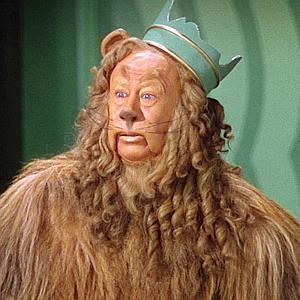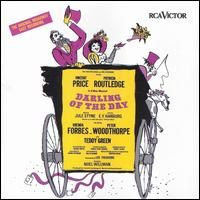“If it ain’t broke, don’t fix it.”
That’s what I’d like to say to Andrew Lloyd Webber and Warner Bros, who are respectively planning new stage and screen adaptations of the 1939 classic The Wizard of Oz. Webber is preparing a new London production for 2011 starring Michael Crawford as the Wizard and a BBC contest winner as Dorothy. He and lyricist Tim Rice (instead of the previously announced Glenn Slater) will be interpolating five new songs alongside the Harold Arlen and Yip Harburg classics. Jeremy Sams is directing and supplying a brand new book for what is being billed as Andrew Lloyd Webber’s New Production of The Wizard of Oz.
Details have recently emerged in Variety about the upcoming production, which Sams promises to be different from the film. The new songs include a new opening number as well as “an old-fashioned 11 o’clock number for Glinda and a major second-act opener for the Wicked Witch and her Winkies.” Ideally, I think Webber and Rice – whose last musical theatre collaboration was Evita – should just write a brand new show. I don’t think that Webber has had as strong a collaborator since. He goes on to say, “the closer you get to the original the more you’re faced with the question of, why are you doing this? Why not just give audiences the DVD?”
If they had guts they’d go back to L. Frank Baum’s original stories and come up with something entirely new and original. It would be interesting to see the team write a brand new show from the ground up. While it’s not a very strong show, The Wiz takes points for being its own adaptation and separate from that of the film. There will be a built-in audience for the show, but does it require new material? No. I can’t imagine that anything that Webber and Rice would write would match the quality of the brilliant original score. Personally, I would choose the DVD.
There are two stage versions of the film available for amateur/stock production from Tams-Witmark: the 1942 St. Louis Muny version and the 1988 Royal Shakespeare Company revision. The former has a simpler structure and requires less in terms of scenography (though the Wizard takes Dorothy back to Kansas on his rocket ship). The latter more closely follows the 1939 screenplay, and is a bit more of a spectacle. Both contain the film’s score, though the Muny edition contains a song I’ve never heard called “Evening Star.”
Incidentally, ten years ago this week I played the Cowardly Lion in my high school’s production of the RSC adaptation. The show is performed in two acts, with dialogue padded out a bit and some scenes extended. Most of the songs are given their original verses left unused in the film, while “If I Were King of the Forest” is given the button is doesn’t have in the film. “The Jitterbug,” famously cut from the film, is back in as the closest thing there is to an eleven o’clock number. Much of Herbert Stothart’s underscoring is reused. There is something to the recognition factor: it was the highest selling production in my high school’s history, all performances were sold to 125% capacity. Even after breaking the fire code, the box office was still forced to turn people away at the door.
Even more staggering to me was yesterday’s report from Deadline that Warner Bros was in talks with Robert Zemeckis to direct a remake of the original film using the original script. Remakes tend to suffer as a rule, but those that are slavishly like the original tend to be the worst (shot-by-shot remake of Psycho anyone?). Zemeckis’ reps are now saying the director is not going to be involved in the project, which is the best news of the day. The best action, I think, would be to just scrap the project altogether. Again, I’d rather just pop in the DVD of the original.
Our international obsession with The Wizard of Oz continues. Last year, there were sold out screenings of the film to celebrate its 70th anniversary. New DVD releases and a Blu-ray edition followed, only five years following the most recent special edition DVD. The songs, the lines and images are a part of our lexicon and abound in pop culture references. Gregory Maguire’s revisionist look at the story became the best-selling novel and musical theatre phenomenon Wicked. While the musical rakes in millions upon millions each week to sold out houses worldwide, Dreamworks is planning its film adaptation.
The animated feature Dorothy of Oz (based on Roger S. Baum’s book) with Lea Michele voicing the title character, is scheduled for a 2012 release. Meanwhile two other Oz related films are in the works. Disney’s Oz: The Great and Powerful is slated to be directed by Sam Raimi and tentatively star Robert Downey Jr as the Wizard in a prequel. Meanwhile Drew Barrymore has signed onto Surrender Dorothy, about Dorothy great-great granddaughter who is forced to take on the Wicked Witch.
But is that too much Oz on the marketplace, and will Oz over-saturate the market? That remains to be seen, but it is something that has crossed my mind. The original Baum books are extraordinary, and it’s interesting to see how they’ve been adapted over the years, from the 1903 musical version to the present. But to Webber and Warners, I say leave well enough alone.



